Tune Tag #19 with Steve Goldberg of Earworms & Song Loops, Pt. 2: Brian Eno, Cheap Trick, Sammy Davis Jr., Be Bop Deluxe
Steve's first attempt at a "standard" Tune Tag yields songs from the Great American Songbook all the way to the experimental and avant-garde!
A ticket under your seat! Come on down, Steve! Let’s Tag Tunes!🎶
of the Earworms and Song Loops Substack joins us for his first anything-goes Tune Tag! He was part of a special Genesis Edition, accessible here:Steve: Okay Brad, this feels like a Tag to find the most terrifically terrible tunes in history. And by terrible I mean, amazing. I remember hearing Miles Davis being interviewed, and he was telling a story of hearing, I want to say Mingus, but it was probably someone else, and describing the sound as terrible. The interviewer was confused until it became clear that “terrible” meant “terribly brilliant.”
Steve’s Song #1 sent to Brad: Esquivel, “Begin the Beguine,” 1958
Steve’s rationale: I knew immediately that I wanted to start with “Begin the Beguine.” I also knew that there would be a hundred interpretations of this Cole Porter classic. When I saw the Esquivel version, I found my winner. I own three albums and a CD by “the father of space-age lounge music.”
I think I discovered Esquivel back in college at the campus radio station. I love this sh*t (another Milesism: = fantastic stuff). I have several albums by Martin Denny and Arthur Lyman that I bought back in the day. There’s something cozily kitschy about this style of music that makes me supremely giddy.
[Brad: I agree, and as I was 3 in 1958 (when this Esquivel cover was released on RCA Victor), I grew up in the ‘60s with much this same vibe, thanks to Dad’s mammoth jazz record collection! Mom and Dad’s best friends would frequently come over for Pinochle, cocktails, ping-pong, and a small army of ashtrays purloined from Houston’s Tidelands…always with light jazz or this “lounge/cocktail” music playing on the “Vic.” Thanks for the memories, Steve!]
Brad’s Song #1 sent to Steve: Sammy Davis Jr., “Begin the Beguine,” Live, 1984
Steve’s response: I can only assume the tie-in is the obvious one: It’s another fabulous interpretation of the Porter tune. But, I am left wondering if there is a Sammy/Esquivel connection I’m unaware of. Maybe the connection is that both of them had to deal with racism to get their music made and accepted. Sammy Davis, Jr. definitely dealt with a ton of it (being Black and Jewish), but I’m unsure about (Juan García) Esquivel, who is of Mexican descent. I’m confident he faced his fair share of racism.
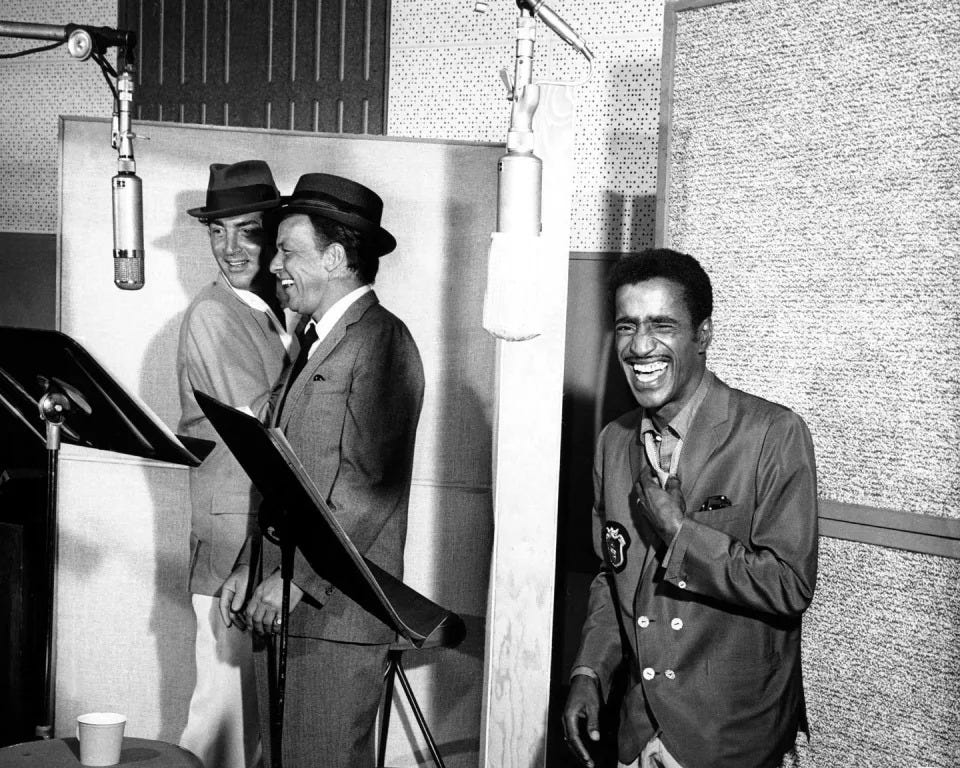
[Brad: Quick note on Sammy and enduring ‘50s and ‘60s discrimination: Especially in Las Vegas, and especially when Sammy was performing with the Rat Pack, including Dean Martin and Frank Sinatra, The Chairman of the Board would insist Sammy get the same food, room accommodations, and every other consideration afforded Dean and himself. If Caesar’s or The Sands, or wherever, didn’t or wouldn’t, Frank threatened to cancel the gig, and had no problem doing so if the property refused to comply.]
Brad’s rationale: I love Cole Porter. I love the Great American Songbook. Of the G.A.S. composers over the century, Porter is not only alone in his songwriting mastery, but he was consistently alone in being the sole writer of all his songs: Words and music.
I love The Rat Pack, and the fact that all, in the ‘60s, were on Frank Sinatra’s Warner Bros.-distributed Reprise Records, which he founded in 1960….Frank, of course, Dean Martin (even his kid, Dino, with Desi and Billy!), and Sammy Davis, Jr. This 1984 live performance at Jerry Lewis’s Labor Day Muscular Dystrophy Telethon occurred just six years before Sammy’s passing, in 1990, at age 64.
There’s so much to take in from his performance. Relax and enjoy it, of course, but there’s also a lot to zero in on, dissect, and appreciate in his talent and his unique ability to interpret a classic:
Start with the orchestra, which is playing to an established rhythm, and will continue to do so. Sammy surgically meanders in and around that rhythm, skillfully lagging slightly behind the beat, catching up, but never getting lost, and always improvising.
Notice how Sammy’s singing the melody (and creating as he does so), while all the ork is doing is playing complimentary horn punches and accents throughout….not the melody! Brain surgeons aren’t this deft and precise as Sammy is here, vocally. Sublime.
Steve’s Song #2: Mr. Joe Jackson (presents Max Champion in “What a Racket”)
Brad’s response: I have no idea what all this is…no clue as to who Mr. Joe Jackson is (the Joe Jackson?), not to mention Max Champion. But, I chose this song’s “What a Racket!” title to link to our next cultural linchpin from 1974, and my next song.
Steve’s rationale: This one is a bit of a stretch connection-wise. As a huge Joe Jackson fan, I read a couple of months ago that his new project was going to be an album reviving the songs of enigmatic early 20th-century English Music Hall artist, the fictional Max Champion.
The entire album is out now (it’s a lot of fun), but this was the second single off the album (following the first, “Health and Safety,” in late September). Joe has proven before that he can play any style of music, and this is yet another reminder. Jackson’s “Two Rounds of Racket Tour” will traverse the States with 20 dates next June and July.
I suppose the link to Sammy Davis, Jr. is the feel of the orchestration playing behind him reminded me of the orchestra behind Joe in “What a Racket.” If there is another tie-in, I'm sure you will find it! Perhaps Sammy owned the missing shoe from Shoeless Joe Jackson?
Brad’s Song #2: Portsmouth Sinfonia, “Also sprach Zarathustra,” 1974, Columbia Records
Steve’s response: I did not know about TPS. But I love, love, love the concept behind it: An orchestra of players who barely know how to play their instruments or sing? It’s hard to pull off “so bad it’s good” when it comes to art (yes, it’s art). But TPS does it. I definitely need to look deeper into this project.
I assume the tie-in to “What a Racket” is that, to many listeners, this song will sound like a racket? I’m pretty sure Joe Jackson wasn’t a member of TPS, but perhaps I am wrong there.
Joe Jackson might not have been a member of The Portsmouth Sinfonia, but one person I do know was a member is Brian Eno. Here’s a clip I found on YouTube:
Brad’s rationale: Yes, Steve, the “racket” cue from Master Jackson gave me the nudge to expose the Sinfonia, a 1974 favorite for my brother and me! Jackson was 20 when Portsmouth Sinfonia recorded their album, but, as it happens, Joe Jackson was born, coincidentally enough, in Portsmouth, Hampshire, UK!
A Sinfonia doc, with interviews, behind-the-scenes video + candid Eno footage:
Steve’s song #3: MGMT, "Brian Eno," 2011
Brad’s response: I’m pretty sure Steve chose this MGMT song because ‘twas Eno who produced the Sinfonia “effort.”
Steve’s rationale: I will grab any opportunity to bring the Tune Tag back to Brian Eno (see TT #5 for proof). Brian Eno opens it up for essentially any song ever since 1972. He is the Kevin Bacon of music.
I could have picked a Brian Eno song, or to be more obtuse, picked a cover of a Brian Eno song, but then I remembered that MGMT had a song titled “Brian Eno” that just might be my favorite song of theirs. It’s truly a fantastic song. And I hadn’t seen them perform it on Letterman before, and it’s even better live!
Brad’s Song #3: Roger Eno, Brian Eno, “Theme for ‘Opera’,” 1999

Steve’s response: I assume the connection is the obvious one - like I said, you had your pick of the litter, song-wise. I’m just glad you didn’t pick a U2 song (Joking! Back off, U2 fanatics!).
I always loved it when Roger and Brian wrote and recorded together [which they first did in 1983]. I have a couple of ambient compilations on CD that have songs from them both together and separately.
Brad’s rationale: I went “obvious” by searching for an Eno recording, and unwittingly stumbled onto his brother, Roger, whom I didn’t even know existed, much less knew he composed and recorded (and, with his brother, yet)!
Steve’s song #4: Cheap Trick, “One on One,” 1982
Brad’s response: Steve brilliantly responds with a song featuring “Eno” spelled backwards! Steve is many fabulous things, but he (like me) is also a lover of the language and all its wonderful permutations: puns, malaprops, spoonerisms, backwards-spelling, et al!
Steve’s rationale: Okay, here’s a peek into how my brain works: I see two Enos and don’t want to pick another Eno song. And, I don’t want to look through the millions of recorded projects he’s been part of. So, what is Eno backward? One! What are two Enos backward? One and One!
Well, I could have gone with a song with the word or number “eleven” in it, or chosen a song from the band, Eleventh Dream Day (and now I think I should have). But, as I’m working on a Cheap Trick
piece, I thought I’d go with their song “One on One” (written by guitarist, Rick Nielsen) from the album of the same name.Yes, I was tempted to go with the Hall & Oates classic, “One on One,” which I do love. And, I’ll be honest and say that I was also tempted to go with 2 Live Crew’s very crude song with the same title. Maybe Brad will share the link for that [Brad: Yeah, I don’t see that happening…I’m waiting for 3 Live Crew, the sequel], but really, it’s not something that deserves ear-drum space and time.
“One on One,” both album and song, were unfairly criticized by the music press. Is it a top-four album by Cheap Trick? No, but it’s got at least a half-dozen solid tunes, including this one. And Jon Brant, who filled in when bassist Tom Petersson left the band, did a fine job, even if he wasn’t as dreamy as Tom.
[Brad: For the record, Brant only played bass on three One on One songs: “Saturday at Midnight,” “If You Want My Love,” and “She’s Tight.” Nielsen played bass on the “One on One” song.]
Brad’s Song #4: Be Bop Deluxe, “Maid in Heaven,” 1975
For guitarists looking for new unsung guitar heroes to discover, you might include Bill Nelson, their lead singer and guitarist, seen here on UK’s Old Grey Whistle Test:
Steve’s response: It took me a while, but I think I figured out the connection here: Both Cheap Trick’s One on One and the Be Bop Deluxe album, Futurama, were produced by the one and only Roy Thomas Baker!
I own a couple of Be Bop Deluxe albums (that I found for, I believe, 99 cents back in the ‘90s), but not Futurama. I have their later ones and still play Drastic Plastic (1978, their fifth and final album) around once a year. “Maid in Heaven” (terrible title -- and I say that as a supreme lover of puns) reminds me of the more rockin’ songs by Big Star or maybe Sweet [Brad: It would segue nicely into—or out of—Sweet’s “Love is Like Oxygen” from 1978]. Early power-pop vibes galore. I dig it!
Bill Nelson (now 75) and producer, John Leckie, reflect on recording Be Bop Deluxe’s 1976 Sunburst Finish at Abbey Road Studios, in an interview circa 2018:
Brad’s rationale: I noticed Roy Thomas Baker (most famously produced Queen on 5 albums) produced the One On One Cheap Trick album, his only CT production credit. Baker actually walked into his first studio in London at age 14 (Decca Records’ studio)!
By ‘82, Cheap Trick could easily call their production shots, and not only hire any producer in the biz, but have that producer leap at the chance and clear his calendar! Baker produced this Be Bop Deluxe Futurama album in 1975, two years before Cheap Trick made their Epic Records debut, with Jack Douglas producing.
Steve Signs Off
Well, another Tune Tag is in the books! What I love about this, in addition to the bantering and scheming, is how it forces me to dig deep into the vast archives of music, both physically (my collection/the internet) and mentally (my increasingly shoddy memory).
Thanks to you, Brad, I’ve staved off dementia for another year!




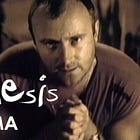



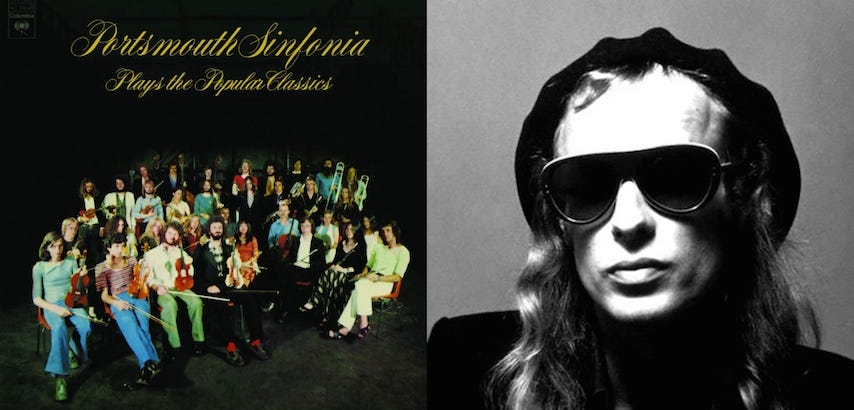

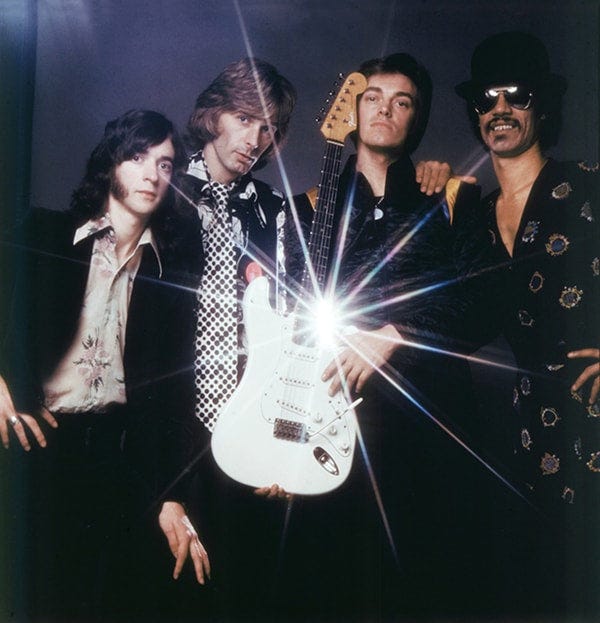
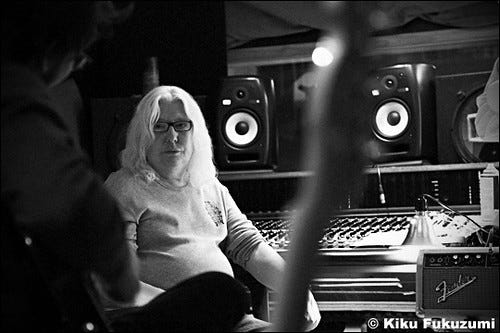

Opening with “Begin the Beguine” is a strong move. Wasn’t expecting that to lead to Eno, MGMT and Cheap Trick…but Bebop Deluxe was the big surprise here for me. Nice work, you two.
Thanks, Brad for another fun tune tag! I always learn more about the songs I pick when you go even deeper into the backstories! I didn't know that Brandt didn't play bass on all the One On One songs. I suppose I could have figured out he wasn't an equal player by the album cover, where half of his face is blocked!
And I'm looking forward to watching to Sinfonia documentary you linked to. I can picture a future FR&BS post on that project in the future! Would it be an Audio Autopsy?